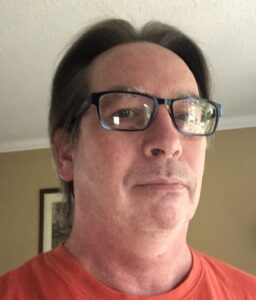Editor’s Message
Some Untold Truths About Coding – Iain Brodie
 With the 2020 Ontario Mathematics Curriculum, comes coding. If you have never coded before, you might feel some apprehension having seen stereotypes of coders and hackers in the media. Almost all of these are untrue and they have hidden some great things about coding that you might not know.
With the 2020 Ontario Mathematics Curriculum, comes coding. If you have never coded before, you might feel some apprehension having seen stereotypes of coders and hackers in the media. Almost all of these are untrue and they have hidden some great things about coding that you might not know.
- Coding is actually pretty easy. It has to be because computers themselves are not smart. Anyone can learn how to create a simple program to do a simple bit of math. There are even block-based coding environments where you assemble pre-coded blocks in order to make a program. If you can drag and drop, you can code.
- Math and coding have always been complimentary. Computer science naturally fit in and started out in the mathematics department. They only split up because of the huge growth in computer studies. Seymour Papert created one of the first educational coding languages almost fifty years ago. With Logo, Papert showed that young children could learn math through coding. He said that learning math through coding was like learning French in France.
- You do not need to be a coder in order to teach coding. You can learn right alongside your students. Teachers who have done this have noticed that their students respect them more for being fellow learners than for being experts. It fosters a collaborative culture among students as well as with their teacher. There are examples of this in this issue’s articles.
- Coding is collaborative. The stereotype of the lone hacker is not true. Not only do coders work together a lot of the time, learning to code is so much better when you have a group all working towards the same end. The various strategies that different students use are great to learn from. Never learn to code alone! Never code to learn alone.
- You are allowed to copy. In coding we have the idea of ‘use-edit-create’ which encourages students to seek out someone else’s code and use it if they cannot figure out how to do it. There is a lot online to help you out with code examples. Just use your favourite search engine, mention with your favourite coding platform and what you want to do. With this example code, students can edit it to make it do something different or better, and finally with these lessons learned, create something for themselves. Even better? This is written directly into the specific expectations for coding. Go look!
- Coding is fun and rewarding. You will remember the feeling of accomplishment you had when you created your first program. Coding is like a puzzle that wants to be solved. It isn’t always an easy, but that is part of what makes it fun. If it were so easy that we didn’t have to think, it would be boring and the reward would be small.
There are more reasons to code to learn mathematics than there are reasons against it. We can now add ‘code it’ to our variety of math communication types like pictures, numbers, words, etc. If you can code it, you understand it, and we can see the thinking that went into the program by looking at the code. The most important reason to learn to teach through coding is your students. They will need this skill and this way of thinking about problems for their futures. And . . . it’s fun!
A word to faculties of education with coding courses: if you have students who have created projects, interesting applications, or interesting thinking about coding pedagogies, please reach out and have them submit an article or a story about learning to code. It need not necessarily be connected directly to math learning. We are also interested in articles or stories about the affordances of coding in an online environment, and accommodations for students with physical and learning challenges that work or need improvement.
Teachers, we are looking for stories or articles about coding experiences in your classrooms that teachers can read, enjoy, learn from and be inspired by.
Please contact the editor at ibrodie2 (at) uwo.ca.
Our articles:
Social Emotional Learning in an Innovative, Inclusive Classroom
Jennifer Long, Derek Tangredi, & Jen Apgar
Computational Learning in Nunavut
Alfred Rose
Creating a Video Game on Scratch and Building a Makey Makey Game Controller
Janice L. Bowen
